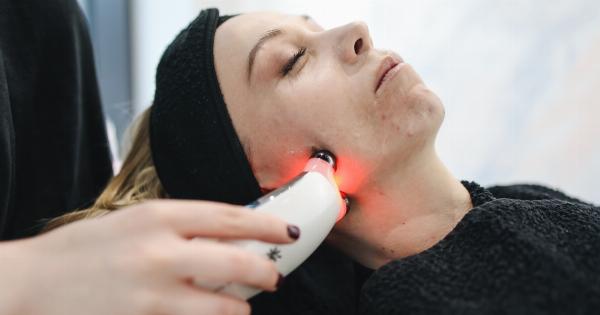Anal itching and hemorrhoids are both common conditions that affect the anal area. However, they are distinct conditions with different causes and treatments.
It is important to understand the differences between anal itching and hemorrhoids in order to seek appropriate medical advice and treatment.
What is Anal Itching?
Anal itching, also known as pruritus ani, refers to the intense itching sensation around the anus. It can be an uncomfortable and distressing condition. Some common causes of anal itching include:.
- Poor hygiene
- Tight or synthetic underwear
- Excessive sweating
- Intestinal parasites or bacterial infections
- Prolonged exposure to moisture
- Chemical irritants like harsh soaps or detergents
Anal itching is often accompanied by a strong urge to scratch the area. However, scratching can lead to further irritation and make the condition worse.
In some cases, anal itching may be a symptom of an underlying medical condition such as hemorrhoids or a fungal infection.
What are Hemorrhoids?
Hemorrhoids, on the other hand, are swollen blood vessels in the anal canal or rectum. They can be internal or external and are often caused by increased pressure in the area. Some common factors that contribute to the development of hemorrhoids include:.
- Chronic constipation or straining during bowel movements
- Pregnancy and childbirth
- Obesity
- Sitting or standing for long periods of time
- Aging
- Genetic predisposition
Hemorrhoids can cause symptoms such as pain, itching, and discomfort. They may also lead to rectal bleeding during bowel movements. It is important to note that not all anal itching is caused by hemorrhoids, and not all hemorrhoids cause anal itching.
How to Differentiate Between Anal Itching and Hemorrhoids?
While both anal itching and hemorrhoids can cause discomfort in the anal area, there are some key differences that can help differentiate between the two:.
- Causes: Anal itching is often caused by external factors such as poor hygiene or chemical irritants. Hemorrhoids, on the other hand, are mainly caused by increased pressure in the anal area.
- Location: Anal itching can occur both internally and externally, while hemorrhoids are mainly located in the anal canal or rectum.
- Additional Symptoms: Hemorrhoids can cause additional symptoms such as pain, swelling, and rectal bleeding. Anal itching, on the other hand, may not have these additional symptoms.
- Duration: Anal itching is typically temporary and can resolve with proper care and hygiene. Hemorrhoids, on the other hand, may persist and require medical intervention to manage or treat them.
Treatment for Anal Itching:
Treatment for anal itching usually involves addressing the underlying cause and providing relief from the itching sensation. Some common treatment options include:.
- Maintaining good hygiene by keeping the anal area clean and dry
- Avoiding irritants such as perfumed soaps and harsh detergents
- Using topical creams or ointments to soothe the itching
- Taking oral antihistamines to reduce the itching sensation
- Applying a cold compress to alleviate the itching
- Using over-the-counter hemorrhoid wipes for gentle cleaning
If the anal itching persists or is severe, it is important to consult a healthcare professional for a proper diagnosis and appropriate treatment.
Treatment for Hemorrhoids:
The treatment options for hemorrhoids depend on the severity of the condition. Mild hemorrhoids can often be managed with lifestyle changes and self-care measures such as:.
- Increasing fiber intake to soften stools and prevent constipation
- Drinking plenty of fluids to stay hydrated and promote regular bowel movements
- Using over-the-counter creams or ointments to relieve pain and swelling
- Taking oral pain relievers if necessary
- Sitting on a cushion or donut-shaped pillow to reduce pressure on the hemorrhoids
If self-care measures do not provide relief or if the hemorrhoids are severe, medical interventions may be required. These can include procedures such as rubber band ligation, sclerotherapy, or surgical removal of the hemorrhoids.
When to Seek Medical Advice:
It is important to seek medical advice if you experience persistent or severe symptoms. Additionally, if you notice any of the following symptoms, it is recommended to consult a healthcare professional:.
- Rectal bleeding
- Excessive pain or discomfort
- Changes in bowel habits
- Presence of lumps or protrusions around the anus
- Unexplained weight loss
- Family history of colon cancer or inflammatory bowel disease
A healthcare professional will be able to provide a proper diagnosis and recommend appropriate treatment based on the specific condition.
Conclusion
Anal itching and hemorrhoids are two different conditions that can cause discomfort in the anal area. Anal itching is often caused by external factors and can be managed with proper care and hygiene.
Hemorrhoids, on the other hand, are swollen blood vessels and may require medical intervention if self-care measures do not provide relief. It is important to differentiate between the two conditions and seek appropriate medical advice when necessary.





























